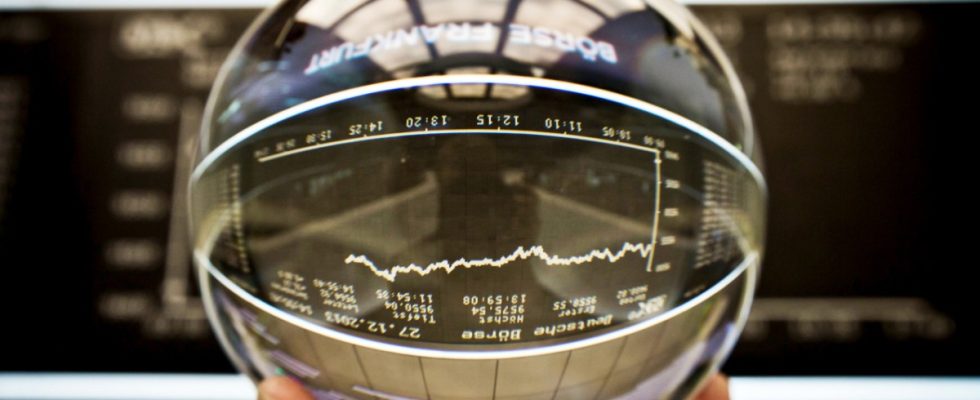This year things are supposed to go uphill. The Council of Experts predicts 0.7 percent economic growth for 2024 previously. Other institutions and economists are also trying to predict the future using a lot of data. The problem is: the future does what it wants. The predictions have a shelf life of a few months. And economists are regularly wrong. Nevertheless, people need to look into the future in order to endure the present.
While short-term forecasts are often at least somewhat accurate, the medium-term outlook is usually of no use. In March 2022 – Russia had already invaded Ukraine – the Council of Experts predicted growth of 3.6 percent for 2023. In fact, 2023 began with a technical recession in Germany – the second consecutive quarter in which the economy has contracted. At the end of 2023, virtually all economists expected a decline over the entire year.
In the USA, on the other hand, many economists and the central bank had to abandon their prediction of a recession for 2023. The past had not been a good guide. Central banks have historically still had a crisis with interest rate jumps like the recent ones triggered. This time it didn’t matter, the opposite happened. The US economy is booming.
Economists are often too optimistic
It is not just the “poly-crisis” from Covid-19, Ukraine, the dispute with China, inflation and the Middle East war that makes predictions difficult. The Economist already has 2018 researchedthat researchers almost always assessed the growth of shrinking economies from Germany to Japan as too positive. The forecast professionals weren’t even roughly correct over a twelve-month period. At least they were better than a random generator.
So economists are often too optimistic. That can also be a tactic. After all, no one wants to be accused of causing panic. Because predictions can have consequences.
This is most evident in the inflation rate. On the one hand, it is a sober data point, but on the other hand, this data point influences consumption and savings decisions – and thus, in turn, future inflation. A prediction can therefore also be a calming tool. Economists and central bankers know this. They are cautious, but as a result they often miss economic turning points – as was the case recently with inflation. The European Central Bank (ECB) is already a prisoner of itself. It has a high incentive to predict an inflation rate of around two percent – after all, this value is the declared goal of its interest rate policy.
Economists can do no more than scan their models for systematic errors and continually adjust them. In 2022, the ECB reacted very late in its core competence – recognizing inflation. Perhaps the long phase of mini-inflation had stunted the imagination. She did not see “extraordinary developments such as the unprecedented electricity price dynamics and supply bottlenecks” coming. That’s what it says in their analysis the late key interest rate increase. It reads like an apology.
But don’t be ashamed, the problem with the future is a deeply human one. Corona? The Hamas attack in October, which even Israel’s world-class intelligence service classified as a fantasy scenario? These are the “black swans” for which you can hardly prepare because you cannot imagine them. You only ever saw white swans.
The same applied to the banking crisis of 2007. The iPhone. Donald Trump. The world is a zoo full of black swans, whose appearance experts then try to explain afterwards. Which is why it is difficult to speak of “mistakes” made by those responsible. They didn’t have a crystal ball, just advisors.
It’s not just macroeconomics that has its difficulties with the future. In the financial industry, many people make money by making predictions: bonds will rise, so buy them! This industry will boom, so invest! It has been proven that active investors can only beat the market in the long term if they are lucky. Or with banned insider trading.
But society is hungry for data. Politicians, consumers and the media want the outlook. Nobody wants to drive just by sight. The incentive to make incorrect forecasts is not the economists, but the consumers of the forecasts. Because people demand numbers as security even where there can never be security.

